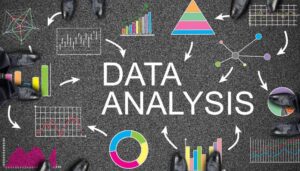
The Ultimate Guide to Agency Project Management
In the dynamic world of agency project management, marketing and advertising agencies face unique challenges in managing projects effectively. This blog post will delve into the intricacies of agency project management, exploring its benefits and obstacles, while providing actionable insights to improve your workflow.
Our solutions include defining precise goals, optimizing communication procedures, boosting productivity using automation tools, instituting project management methodologies, putting quality control procedures into place, and using data analysis to make well-informed decisions.
What is Agency Project Management?
Agency project management refers to the process of planning, organizing, and controlling resources to achieve specific goals within a marketing, advertising or digital agency. This discipline plays a crucial role in ensuring that projects are completed on time, within budget and meet client expectations.
 Project management is a vast topic that covers many aspects of business management. It includes scheduling, budgeting and tracking tasks as well as monitoring progress against milestones. A project manager must also ensure that all members of the team are working together effectively to achieve common goals.
Project management is a vast topic that covers many aspects of business management. It includes scheduling, budgeting and tracking tasks as well as monitoring progress against milestones. A project manager must also ensure that all members of the team are working together effectively to achieve common goals.
The Importance of Agency Project Management
Agency project management is more important than ever before as agencies move toward more integrated delivery models. In addition to traditional creative work like copywriting and design, many agencies now offer services such as SEO and paid search advertising. As more services are added to an agency’s portfolio of offerings, it becomes even more vital for managers to keep track of multiple projects at once—not just those related directly to their teams’ skill sets, but also those involving other departments.
It’s also important for agencies to manage their client relationships effectively, so they can consistently deliver high-quality results every time. This means keeping clients informed about every stage of their project.
Definition of Agency Project Management
The role of project management in an agency context is to ensure that all projects are completed on time and within budget.
Project management in an agency context involves coordinating various tasks such as creative development, media buying, content creation and analytics reporting. The aim is to generate top-notch output while keeping productivity at an optimum level during the whole project.
The process of managing a project involves several stages such as planning and scheduling, executing, monitoring and controlling, and closing out.
The following is a brief overview of how agencies use some project management techniques:
Planning: This is the first step in managing any project. It involves defining the objectives of your business and setting its goals. You need to clearly define what you want to achieve with your campaign or project before you start working on it. You also need to determine who will be responsible for each aspect of the campaign and how long it will take them to complete their task(s) or part(s) thereof.
Scheduling: After planning comes scheduling, which involves putting together an appropriate timeline for each task involved in managing the project from start to finish, including setting deadlines for all deliverables along with milestones along the way so that you can track progress effectively.
The Importance of Project Management for Agencies
 By implementing a robust project management system like Function Point, agencies can enhance client relationships, increase productivity through improved workflows, and achieve long-term growth through strategic planning.
By implementing a robust project management system like Function Point, agencies can enhance client relationships, increase productivity through improved workflows, and achieve long-term growth through strategic planning.
Enhancing Client Relationships Through Effective Planning
A well-structured project management process enables agencies to deliver projects on time and within budget while meeting or exceeding client expectations. This helps build trust with clients and fosters long-lasting relationships, both of which are critical to an agency’s success. By using comprehensive agency software, you can easily manage tasks, deadlines, budgets, and resource allocation as well as track progress throughout the entire lifecycle of a project.
Increasing Productivity Through Improved Workflows
An efficient workflow is key to increasing productivity within an agency setting. With proper planning and organization provided by top-notch agency software, team members can focus on their core responsibilities without getting bogged down by administrative tasks or communication issues. Moreover,
- Automation
This feature allows repetitive tasks to be automated, which saves valuable time that could be better spent on creative endeavors.
- Cross-functional collaboration
The platform facilitates easy communication between many departments, which increases productivity in effectively finishing projects.
Achieving Long Term Growth Through Strategic Planning
 Last but not least; successful implementation of a solid project management strategy contributes significantly towards achieving long-term growth objectives for your marketing or advertising agency.
Last but not least; successful implementation of a solid project management strategy contributes significantly towards achieving long-term growth objectives for your marketing or advertising agency.
- Data-driven decision-making: Agency software provides valuable insights and analytics that can help you make informed decisions based on real-time data.
- Resource optimization: By effectively managing resources, your agency can allocate them to the most important projects and ensure maximum return on investment (ROI).
- Risk management: A robust project management system helps in identifying potential risks early on, allowing agencies to take proactive measures before they escalate into bigger issues.
In essence, adopting a comprehensive project management approach is crucial for marketing and advertising agencies looking to thrive in today’s competitive business environment. A single investment in an all-in-one solution will improve client interactions, boost productivity, and create the foundation for long-term, sustainable growth, in addition to streamlining your workflow.
For agencies looking to enhance their client relationships, workflow, and long-term growth, project management is a vital tool. By leveraging the right project management software, agencies can take advantage of its many benefits and ultimately increase productivity. Moving forward, we will explore how agency project management can be used as a strategic planning tool to achieve successful outcomes.
Improving the Agency Project Management Process
 Efficient project management is crucial for marketing and advertising agencies to deliver high-quality work on time and within budget. To continuously improve your agency’s project management process, consider implementing the following strategies:
Efficient project management is crucial for marketing and advertising agencies to deliver high-quality work on time and within budget. To continuously improve your agency’s project management process, consider implementing the following strategies:
Establishing a Systematic Approach to Projects
Project management is a systematic approach to managing a business or organization. It’s used to plan, execute, monitor and control the whole process of a project.
By using this method, businesses can ensure that every action taken contributes to their overall goals. A systematic approach helps to eliminate bottlenecks and wastes time by ensuring that all employees know exactly what they’re supposed to do at any given point in time. It also allows you to track progress and make sure that deadlines are met on time.
Project management software is an essential tool for any agency working on multiple projects at once. With the help of this software, you can create work lists, give assignments to team members, and monitor your progress using metrics like the amount of time spent on each task and the total amount of money spent thus far.
Implementing Quality Assurance Practices
Incorporating quality assurance practices into your agency’s workflow will help ensure that all projects meet client expectations. Some effective techniques include conducting regular peer reviews of work before submission, establishing checklists for different stages of the project lifecycle, and setting up internal audits to assess compliance with established procedures. These measures not only enhance the quality of output but also minimize errors or rework required.
Utilizing Data Analysis to Make Informed Decisions
- Data-driven decision-making: Leverage data from past projects to identify trends or patterns that could inform future decisions. For example, analyzing historical performance metrics such as average turnaround times or resource utilization rates can help optimize workflows.
- Benchmarking against industry standards: Compare your agency’s performance against relevant industry benchmarks to gauge areas where improvements are needed. Resources like Agency Management Institute’s performance benchmarks can be useful in this regard.
- Continuous improvement: Use data insights to drive continuous improvement initiatives, such as refining processes or investing in staff training. By doing so, you’ll ensure that your agency stays competitive and consistently delivers exceptional results for clients.
By investing in continuous improvement initiatives, such as refining processes or staff training, you can ensure that your agency project management process is well-structured and capable of delivering exceptional results. Recall that efficient team cooperation and providing clients with exceptional results depend on having a well-organized project management system.
Agencies can enhance their project management procedure and guarantee success by putting in place a methodical approach to projects. As companies recognize the value of careful planning, they must also understand how creating a strategy may result in long-term growth.
Conclusion
Agency project management is a critical component for success in the marketing and advertising industry. By establishing clear goals and objectives, streamlining communication processes, and utilizing automation tools to improve efficiency, agencies can overcome common challenges faced in project management.
Effective project management not only enhances client relationships through effective planning but also increases productivity through improved workflows. Additionally, it enables agencies to achieve long-term growth through strategic planning.
A successful project management process begins with an understanding of how each department contributes to the success of an agency’s projects. The marketing team must understand how their efforts affect the agency’s bottom line; the creative team must understand how their workflow affects other teams; and so on. By aligning these goals with those of your clients, you can create a unified vision for your business and increase the likelihood that you will deliver results that exceed expectations.
Author Profile
- Blogger by Passion | Contributor to many Business Blogs in the United Kingdom | Fascinated to Write Blogs in Business & Startup Niches |
Latest entries
 BusinessJuly 23, 2024The Future of Ecommerce Shipping
BusinessJuly 23, 2024The Future of Ecommerce Shipping BusinessJuly 22, 2024Cost-Effective Advertising Strategies for Small Businesses in the UK
BusinessJuly 22, 2024Cost-Effective Advertising Strategies for Small Businesses in the UK BusinessJuly 11, 2024Understanding ISO 27001 Templates: A Comprehensive Guide
BusinessJuly 11, 2024Understanding ISO 27001 Templates: A Comprehensive Guide BusinessMay 25, 2024How to Make Money with Amazon FBA? – A Comprehensive Guide
BusinessMay 25, 2024How to Make Money with Amazon FBA? – A Comprehensive Guide


